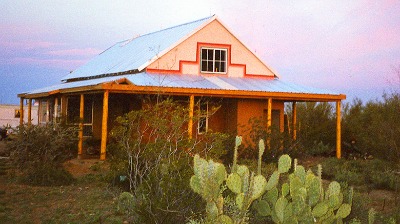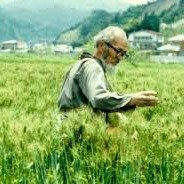Permaculture Practices from Around the World
For Beyond 50's "Green Living" talks, listen to an interview with Jan
Martin Bang from Norway. He will talk about Permaculture as patterns
embedded in our natural world as inspirations for designing solutions to
create sustainable and effective human settlements. Many approaches
are used, based on a dialogue with Nature: integrating microclimate,
functional plants, animals, soils, water management and human needs into
intricately connected, highly productive systems. You'll also learn
about the Permaculture Ethic they go by that is about People Care, Earth
Care and Fair Share.
Permaculture Ethic
Permaculture founders Bill Mollison and David Holmgren formulated the following enduring principles, drawing from ancient religions and cooperative groups:
1. Care for the Earth - Provision for all life systems to continue and multiply.
Also called Earth Share, it's the idea of co-creating with Nature and sustainability to extract from Earth's resources only what's needed for future generations to also thrive.
Permaculture takes into account
our partnership with Nature for a healthy balance. Special care is
given to the soil, inner and outer life of plants using sustainable
agriculture methods, self-development of the farmer, Earth-based
building, and alternative technology.
2. Care of People - Provision for people to access those resources necessary for their existence.
Also called People Care. "The success of the community can be attributed to the attention given to the individual and their place in the collective," taught Bang and Craig Gibsone, co-writers of the book, "Permaculture."
From a spiritual understanding, individuals
coming together contribute to a multi-dimensional field of consciousness
called the Group Being. Collectively, they can mature, like life
cycles in the natural world, from youthfulness to old age.
The health of a community is dependent on having all voices being heard and respected. Qualities encouraged are self-reliance, co-operation and supporting each other.
And, some of the processes used that's
foundational to building relations within the group follow Nonviolent
Communication (NVC), Process Oriented Psychology (POP), and
Psychosynthesis.
3. Setting Limits to Population and Consumption - By governing our own needs, we can set resources aside to further the above principles.
Also called Fair Share for a community to share democratically for all to have access to basic needs: clean air, clean food, clean water, shelter, meaningful work and social contact. It is based on the understanding that there's abundance in Nature.
"Natural systems produce abundance by their very nature. In fact, it seems to be one of the basic ecological laws that ecologies expand, creating more diversity and more abundance," taught Bang.
When there's abundance, people tend to share. This is in alignment with the economics of sharing and the politics of cooperation.
Communities that operate from the Fair Share ethic have designed alternative forms of currency, where economy is a sub-set of ecology to exchange goods and services.
Even
governance is based on a culture of Empowerment (from within), rather
than having power over others and "where each individual feels his or
her power growing or developing out of themselves, this is an indication
that a group is beginning to achieve a healthy decision-making
process," explained Bang and Gibsone.
Subscribe to Beyond 50's Radio Updates!
Beyond 50 values your personal information. Your email will
not be used, sold, or
shared with any outside party.
Related Interviews:

Building a House of Straw

The One Straw Revolution

Monkeys are Made of Chocolate
Related Reading:






